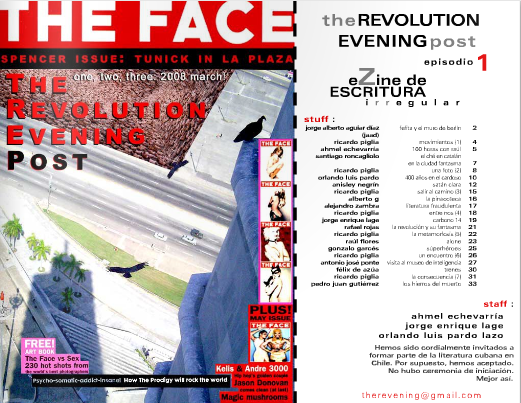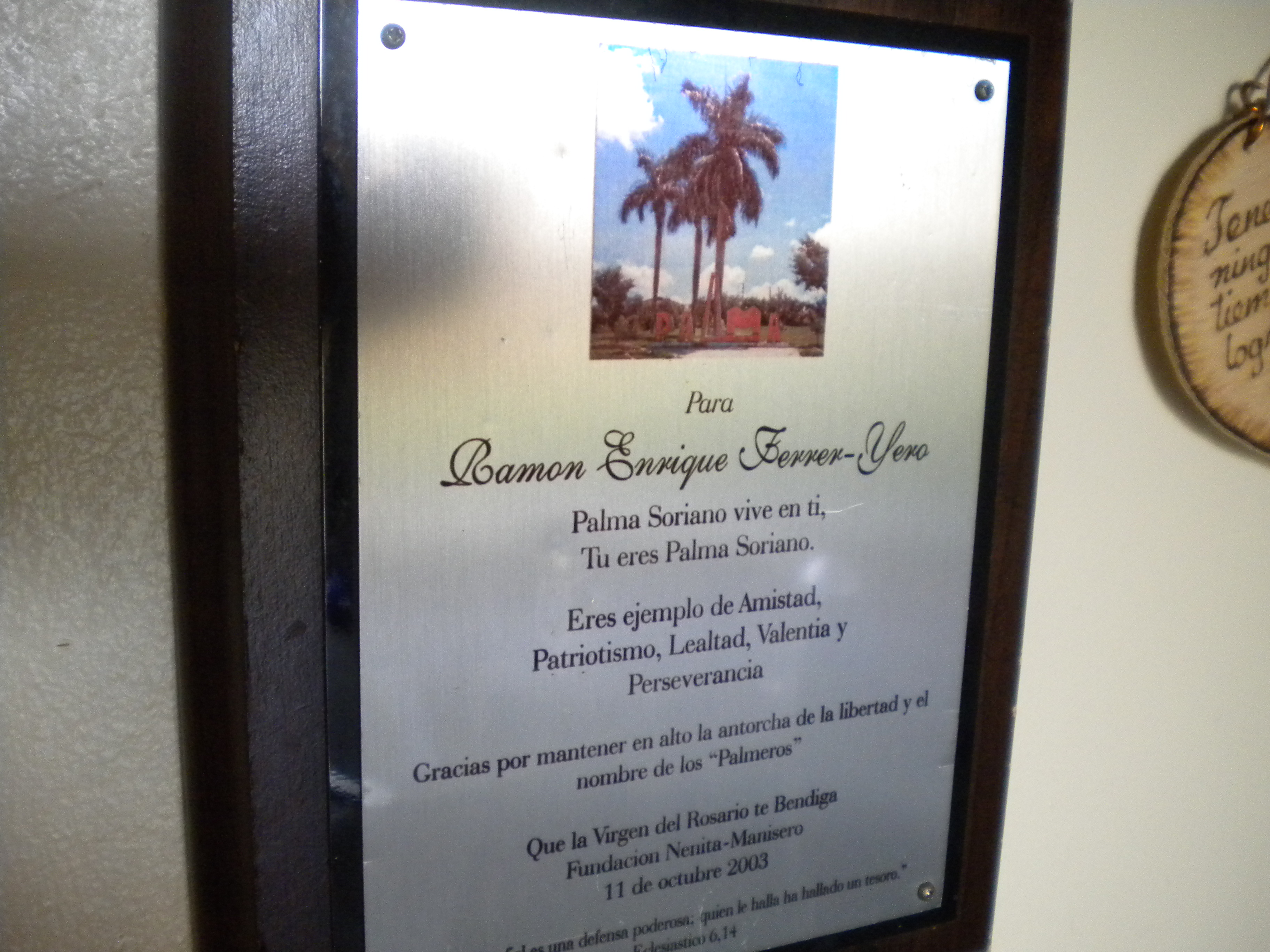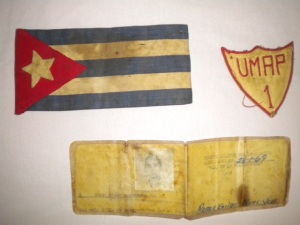 In my judgment, few issues of the Cuban reality are more complex to objectively analyze than the controversial economic, financial and trade blockade-embargo which, since 1962, the United States has maintained against the Island’s government.
In my judgment, few issues of the Cuban reality are more complex to objectively analyze than the controversial economic, financial and trade blockade-embargo which, since 1962, the United States has maintained against the Island’s government.
While there are topics that we can dissect almost surgically, separating their components with pinpoint precision, on this topic there will never be a last word; there will always be one more argument up someone’s sleeve that merits further discussion.
The conflict is born from the etymology itself: whether someone calls it a blockade or an embargo implies, per se, taking sides. The same thing happens with the name of our former leader: it is enough to call him Fidel or to call him Castro, for an interlocutor to divine the political affiliations of the speaker.
I will take a stab at the definitions: it is not an embargo in the strict sense, nor is it a blockade. A simple embargo, speaking literally, would not include pressure on third countries to prevent trade with Cuba: it would apply exclusively to the transactions with the United States, and it is an open secret that this isn’t the case.
On the other hand, the term “blockade” that the Cuban government uses to define these sanctions, is even less relevant. A true blockade implies military maneuvers so that nothing, by land, sea or air, would be allowed into Cuba from other countries. It might be worth asking the inhabitants of Gaza if they know what a true blockade is.
Despite this double inaccuracy, I see the “embargo” as closer to the truth, although the other term is much preferred by the official sensationalists of my country.
It’s clear: this is not the fundamental issue of a subject that has generated heated debates, by both detractors and defenders of the Cuban Revolution, and even among ourselves those of us who reject the totalitarianism of the system that governs us have not been able to reach a consensus.
Why? Well because to evaluate a measure like this, in my opinion, three fundamental questions would have to be defined, each of which is more complex and subjective than the last. The first: whether its origin, its initial application, was justified or not. The second: its objectives today. The third: the results achieved.
Approaching an analysis with these three premises helps to satisfy a criteria based on a method that separates the issues, which, luckily for us, Aristotle inaugurated many centuries ago.
Genesis
No one doubts the true origin of this severe measure: the outrageous expropriations by the Revolutionary Government after their triumph in 1959.
Hundreds of American citizens and companies were dispossessed, in a flash, of their investments and properties with this Revolution that wanted to change even the water table of the Island. Capital invested according to the laws in force up to that moment was vaporized by the new leaders.
Small national proprietors suffered the same fate: anyone who owned a pharmacy, a barbershop, a candy store, lost his personal achievement at the hands of a collectivist dream that was, also, barbaric and thoughtless.
For these Cubans, however, there was no option but to adapt to the new rules of the game. They could leave the country, live cursing the bearded ones, grow old filled with an understandable hatred, or get aboard the triumphant train, with faith in the promised future. I prefer not to speak about other cases I know of: those who could not bear their helplessness in the face of such arbitrariness, and who took their own lives.
But the U.S. citizens and investors had a government response that sought to impose pressure in return for justice. The embargo was born. The date of its full implementation takes us to February 1962.
At this point, I can’t but admit the validity of a coercive measure that tried — today we know unsuccessfully — to reverse these angry and capricious interventions, disinterring the hatchet of war from the very beginning of the process.
Revisiting Machiavelli
Starting in 1992, after being in place for thirty years, the embargo against Cuba changed its principles and purposes. It ceased to be, first, an effort to pressure the Cuban authorities by calling on their sanity; it ceased to be, then, a robust vengeance in kid gloves; and it became, at last, a premise to reestablish diplomatic relations with the Island.
As reflected in the “Cuban Democracy Act,” these sanctions would last as long as the Cuban government refused to take steps toward “democratization and showing more respect for human rights.”
And here was born the first hurdle to determining the fairness and legitimacy of the measure.
I don’t believe I need to repeat that, personally, I have few desires more deeply embedded than to help in the real democratization of my country. I do not want to die without evidence that this land will distance itself from the intolerance, the hate and the exclusion, to build a just nation in which all its children can find their place. This blog is my microscopic contribution to that.
But not to know if these new demands to lift the embargo were already approaching interference in the internal affairs of an independent country, would not be honest. All possible arguments to that effect do not change the ultimate truth: the blockade is a clear interference in Cuba’s own affairs.
I think that little could answer those who approve of fire and brimstone, against a fact as against a lie: but in the last decade, there have never been more than seven countries that have supported the blockade at the United Nations (in 2004), and never fewer than 155 that have voted against it. On the last occasion, in 2009, only Israel and Palau joined hands with Uncle Sam.
Not even nations frankly, and justifiably, hostile to the communist system, such as Poland and the Czech Republic, or U.S. Allies in its war efforts like Great Britain and Australia, have accepted the role of explicitly and publicly defending the embargo.
Why, one wonders. Because in no way is the Machiavellian precept that the ends justifies the means acceptable, in democratic and reasonable international politics.
That the Cuban government deserves to be rejected in infinite aspects, especially with regards to the human rights of its citizens, is an almost universal axiom. That it is worth the trouble to exercise pressure — as recently happened with the releases of the prisoners of conscience — to get at least the smallest signs of flexibility: one hundred percent agreement.
But it will never be valid to violate the sovereignty of a state with economic sanctions, in order to achieve such purposes. At the instant in which such crude measures to reclaim the nationalized properties were resorted to, while wielding the precept of democracy, the validity of the embargo cracked.
Especially because, the house itself, at times, was glass.
Would it have been acceptable for countries like China and Russia to approve economic sanctions to force the United States to close the shameful prisons at Abu Ghraib and Guantánamo? On the other hand, could anyone explain how the United States government adopted this policy against Cuba for being a communist and totalitarian country, yet is a strong trading partner with China and Vietnam?
Snowball is to blame
With each day that passes, the embargo sets new records for longevity. It has outlasted all known members of its species. It even exceeds the record for the longest stay at the helm of a western country, held by ex-president Fidel Castro.
It has had a few touch-ups. The Helms-Burton Act (1996) which reinforced its punitive character; the Trade Sanctions Reform and Export Enhancement Act (2000) which turned the United States into the principal supplier of agricultural products to Cuba (6.6% of imports in this sector come from the country of Lincoln). Data that is, of course, deftly hidden from the Cuban people by the official media.
But the question arises, speaking objectively: does anyone get anything from this policy of sanctions?
Of course they do. The Cuban government gets the perfect excuse to whitewash their economic failures and their authoritarian methods. In the book Animal Farm, by George Orwell, when the pig Napoleon wants to justify the excesses and incompetence of his administration, he resorts to the enemy: Snowball. The renegade pig, according to Napoleon’s propaganda, is equally to blame for the crops failing to thrive, as for the water mill that broke for lack of resources.
For the Cuban establishment, the embargo could be renamed “Snowball.”
The “cruel and inhumane blockade” justifies everything from the decrepit economy, to the astronomical debts to foreign firms, to the shortage of drinking water. The “genocidal blockade” guarantees, according to official propaganda, that Cuba cannot allow democratic openings such as a free press, or lifting the restrictions on Cubans traveling freely throughout the world. The blockade carries the melancholy blame for a hurricane that hits us, a drought that makes the earth crack, the pollution in the streets of Havana, and the hunger in the Cuban countryside.
What has been the affect of this policy? On the ordinary Cuban, the dispossessed? The government has used it to justify its excesses and incompetence, and on the other hand, to keep the population from clearly understanding who has been the cause of the ruin that has overtaken the country. It has, also, made the existence of the poor even more difficult, because though the official figures of the losses caused by the blockade are, at times, scandalously hyperbolic, still there is a share of truth in them.
The powerful have never felt its impact. The corrupt have managed to carve out a living standard that sticks out its tongue at the ineffective embargo. But the workers, the lowly ones, they know its consequences.
Has it strangled the government of the Island? No. Has it succeeded in democratizing our battered country? No? Has it achieved international support? No. Has it affected Washington’s credibility with respect to a humanitarian willingness to help Cubans in need? Yes.
Too much time hijacks reason
Even those of us who argue that the centralized economic model, as opposed to the market and foreign investment, cannot achieve the individual prosperity of a man, and that the malformed creature they are presently trying to install can only result in an archaic and dysfunctional economy, even we have to admit something: while the Cuban government continues to be burdened by the embargo, we cannot measure with any exactitude its inefficiency in providing for the welfare of the nation.
When not competing on equal terms, it is unfair to proclaim winners and losers.
To minimize the importance of the embargo, as its partisans tend to do, collecting figures of trade agreements with other countries in the world, traps them between a rock and a hard place: If, then, it is so ineffective, why keep it?
To not admit that it has been a damaging and prejudicial policy for the progress of this country, to not admit that the iron fist of a totalitarian system has found in the embargo a loathsome ally, is to kidnap a reason too obvious in the conflict.
Let me close these particulars and discuss opinions with an anecdote that is strictly true:
When Barack Obama won the election, in November 2008, I had been working for just two months at the radio station in my hometown. I attended, as a curious spectator, an emergency meeting of all the journalists at the station with the top management.
The government concern, this time, was not the ridiculous possibility of an invasion, or a new “destabilization campaign from the Empire.” Now what was keeping the Party up at nights was the possible flexibility on the part of the new president with regards to the antagonism toward Cuba. The bottom line could be summed up very simply: “He is a charismatic and intelligent leader and he might lift the blockade!”
Behind the somber faces of these officials, lay a frank concern: “How can we guarantee the continuity of our Revolution, or our ideology, if Obama allows Americans to travel freely to the Island, and lifts the blockade all at once?”
September 24, 2010

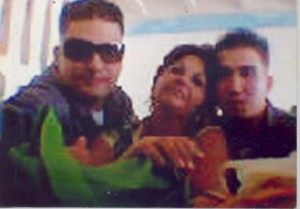
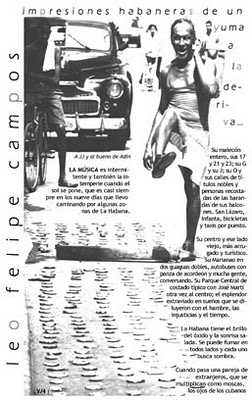
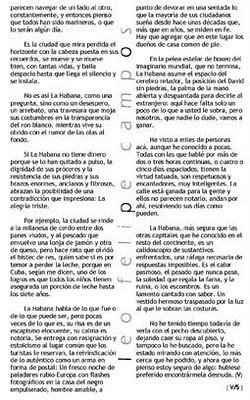
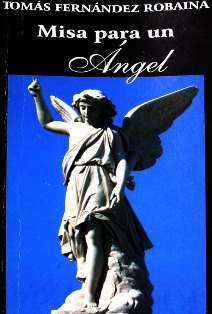
 Haroldo Dilla, Cuban historian and sociologist. Photograph from the internet.
Haroldo Dilla, Cuban historian and sociologist. Photograph from the internet.
 In my judgment, few issues of the Cuban reality are more complex to objectively analyze than the controversial economic, financial and trade blockade-embargo which, since 1962, the United States has maintained against the Island’s government.
In my judgment, few issues of the Cuban reality are more complex to objectively analyze than the controversial economic, financial and trade blockade-embargo which, since 1962, the United States has maintained against the Island’s government.
